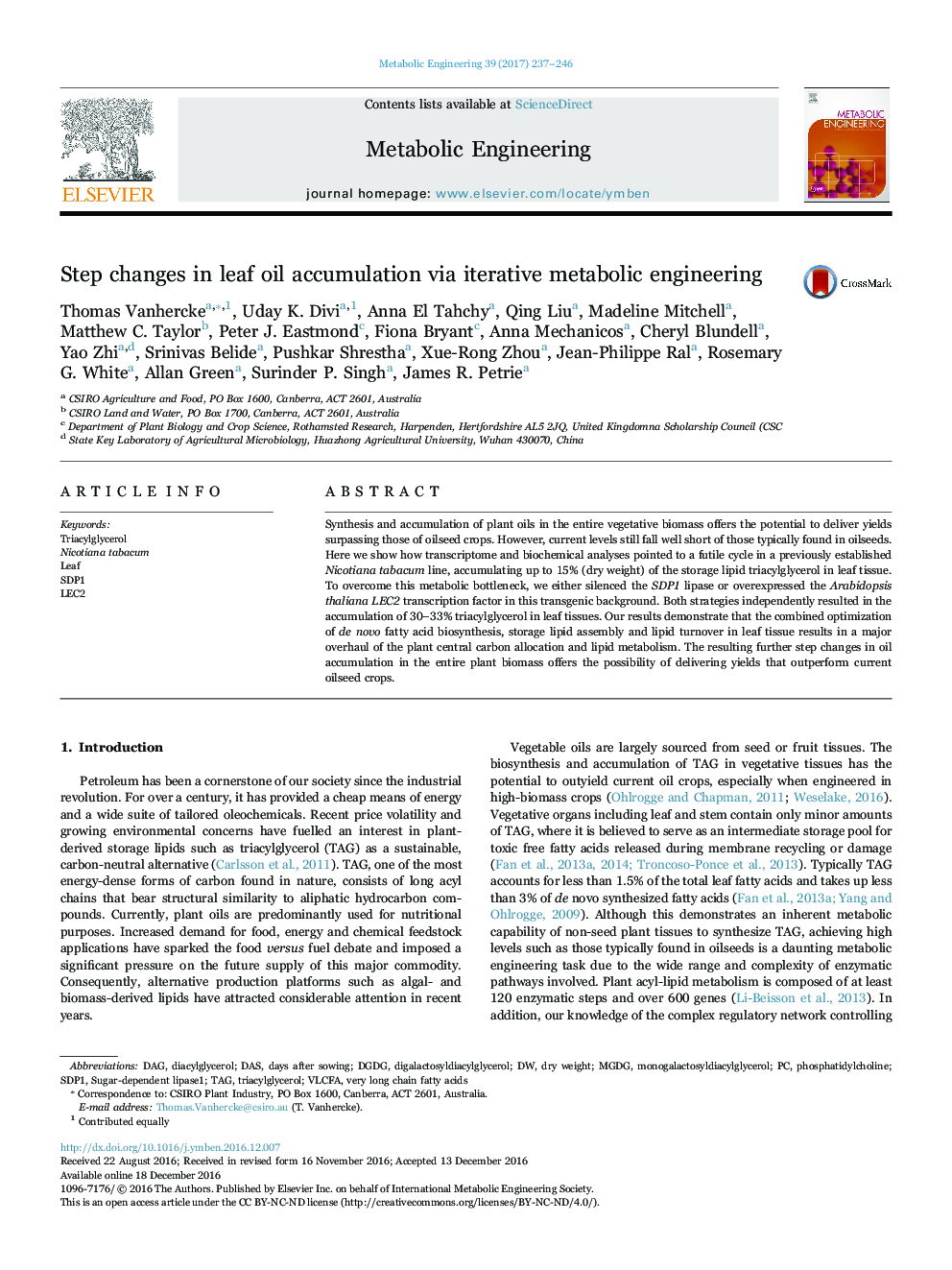| Article ID | Journal | Published Year | Pages | File Type |
|---|---|---|---|---|
| 6452812 | Metabolic Engineering | 2017 | 10 Pages |
â¢TAG accumulation in metabolically engineered tobacco leaves is limited by a futile cycle.â¢Iterative metabolic engineering results in the accumulation of >30% TAG in tobacco leaf tissue.â¢Transgenic leaves resemble oilseed sink tissues and exhibit major lipid & carbon metabolic changes.â¢TAG levels achieved in leaves now surpass those of the oilseed crop soybean.
Synthesis and accumulation of plant oils in the entire vegetative biomass offers the potential to deliver yields surpassing those of oilseed crops. However, current levels still fall well short of those typically found in oilseeds. Here we show how transcriptome and biochemical analyses pointed to a futile cycle in a previously established Nicotiana tabacum line, accumulating up to 15% (dry weight) of the storage lipid triacylglycerol in leaf tissue. To overcome this metabolic bottleneck, we either silenced the SDP1 lipase or overexpressed the Arabidopsis thaliana LEC2 transcription factor in this transgenic background. Both strategies independently resulted in the accumulation of 30-33% triacylglycerol in leaf tissues. Our results demonstrate that the combined optimization of de novo fatty acid biosynthesis, storage lipid assembly and lipid turnover in leaf tissue results in a major overhaul of the plant central carbon allocation and lipid metabolism. The resulting further step changes in oil accumulation in the entire plant biomass offers the possibility of delivering yields that outperform current oilseed crops.
